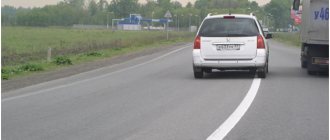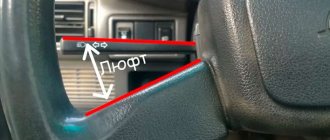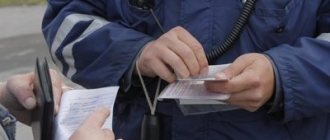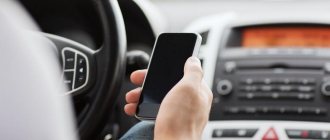What gives bailiffs the right to confiscate a car and what is an arrest?
This right to serve as bailiffs is assigned by the Federal Law “On Enforcement Proceedings” (hereinafter referred to as the “FZ”) of 2021. This is called a “seizure of property.” Specifically, Article 80 of this Federal Law says the following:
1. A bailiff, in order to ensure the execution of a writ of execution containing demands for property penalties, has the right, including during the period established for the voluntary execution by the debtor of the requirements contained in the writ of execution, to seize the property of the debtor.
A car is formally a movable property. This also applies, like everything in this article, to motorcycles, mopeds, scooters, tractors and other types of personal equipment.
But it is important to understand that an arrest does not necessarily mean the seizure of a car. Bailiffs don’t always confiscate a car. Often it is in the custody of the debtor (that is, during the sale the debtor is allowed to continue to dispose of it). And sometimes they can even simply restrict the right to use a car (Part 4 of Article 80 of the Federal Law).
How is arrest imposed?
The procedure for seizing property is quite simple:
- you have debts for which your car and other property may be seized,
- for such debts, a court order is formed or a court decision is made with the corresponding writ of execution,
- the writ of execution is handed over to the bailiffs,
- The bailiff service initiates enforcement proceedings and issues an arrest order.
Arrest should not be confused with confiscation. Formally, these are different things, although in both cases the car can be taken away. Confiscation is a procedural measure within the framework of criminal law, and is carried out by a court decision in a criminal case, in contrast to arrest, which is carried out as part of enforcement proceedings, including in administrative and civil cases (fines, bank loans and others).
No one can just take a car based on the mere existence of debts! To do this, 2 important formalities must be observed:
- Enforcement proceedings must be initiated against you (see the list of proceedings on the official website of the FSSP),
- and as part of this proceeding, an arrest order must be issued (it is also displayed as a result of a search by full name on the bailiffs website).
Only based on the result of the decision within the framework of the proceedings, bailiffs can take the car in 2021.
You will also be interested in:
- Pay the traffic police fine 1 ruble and it burns? Is this possible and what are the consequences?
- Bailiffs writing off fines from cards - which banks don’t charge them?
- A fine for average speed - is it legal and how to appeal?
Can traffic police officers seize a car for debt to the bank?
There is a debt to the bank on the card, can traffic cops seize the car, in general, what is the threat?
Lawyers' answers (2)
The bailiff who is handling the case will not immediately rush to take the car from the debtor; the collection process has a slightly different algorithm:
1 First, a portion of the debtor’s wages will be levied. The bailiff, through the tax service, finds out where the debtor works and sends a writ of execution to the place of work, according to which a withholding of up to 50% is imposed on the debtor's wages. If such a debt collection measure is completed, then you don’t have to worry about your car, the debt will be gradually repaid.
2 The bailiff can also seize the debtor’s bank accounts. If funds are found on them, then all the money goes to the bank. With further receipts of funds to these accounts, they are also subject to withdrawal.
3 If the debtor does not work and does not have bank accounts, then the bailiff has no choice - he turns his attention to the debtor’s property in order to seize it. But here, too, it should be understood that in order to repossess a car, there must be a credit debt of appropriate size. No one will take your car for a small debt.
Seizure of a car by a bailiff
1 Even at the initial stage of collection, you may find that your car is subject to a ban on registration actions. This is done just in case, so that the debtor will not be able to sell the car until he pays off the loan. In the future, the bailiff may seize this vehicle.
2 The bailiff applies to the court for permission to seize the debtor’s car in order to pay off the debt to the bank. After receiving permission, the bailiff begins searching for the car: at the place of residence, registration, work of the debtor. In order to find seized vehicles, joint raids by bailiffs and traffic police officers are often carried out.
3 If the bailiff discovers the car, it is confiscated and taken to the parking lot by tow truck. Subsequently, the car is sold at auction for confiscated cars, and the proceeds are used to pay off the debt. I hope you liked my answer and appreciate it positively)) Good luck to you.
Can a car be confiscated for traffic fines?
Yes. For almost any unpaid fines, including those from auto-fixation cameras. But for this it is important to understand the terms after which the delay appeared, and how long it lasts.
These deadlines look like this:
- the driver or owner is given an administrative decision with a fine and given 70 days to pay (10 for entry into force, 60 directly for payment), if the person has not appealed the fine,
- after this period, the fine can be transferred to the bailiffs (and fines are not always transferred in practice),
- the bailiff, who is responsible for the information about the debt, initiates enforcement proceedings on paper and is obliged to give 5 days for voluntary payment,
- after this period, a decision may be made to collect funds from the debtor’s accounts - then the bailiff makes inquiries to banks (at random and not all) about the availability of the debtor’s accounts; if any are found, the money is debited from the card or accounts,
- further, if it was not possible to collect the debtor’s money directly, then an arrest may be imposed, only within the framework of which the car can be taken away to be sold against the debt.
Important! If the amount of your debt is less than 3,000 rubles, then arrest cannot be imposed (Part 1.1 of Article 80 of the Federal Law). We are talking specifically about each enforcement proceeding - that is, about each unit of debt, and not the total amount of all debts.
This also applies to civil debts.
Method No. 2. As part of a criminal case
Step 1 – making a decision to confiscate the property of the accused person: The procedure for seizing the car of the accused person within the framework of criminal proceedings is regulated by Article No. 115 of the Criminal Procedure Code of the Russian Federation. An arrest implies a ban on the use of a vehicle, as well as the seizure and transfer of movable property for safekeeping.
In criminal proceedings, it is possible to confiscate property owned by third parties if there are compelling reasons to believe that the vehicle was acquired as a result of criminal acts on the part of the accused person.
To make a decision on confiscation, the investigator or interrogator submits a corresponding petition. The case of seizure of the property of the accused person is considered by the court at the place where the preliminary investigation was conducted. The consideration period is no more than 24 hours from the date of filing the application.
Step 2 - actual seizure: In the process of carrying out enforcement actions, the participation of a professional appraiser is permissible, who determines the actual value of the property and records traces of criminal origin (interrupted body number, etc.).
The seized car is confiscated or transferred for safekeeping to a certain person, who must be notified of responsibility for the safety of the transferred property. The corresponding entry is entered into the protocol.
If you lose a civil lawsuit for collection
If your debt arose as a result of a claim against you by a third-party organization or individuals, then everything here is similar to traffic police fines, and the car can be taken away by bailiffs if the amount of debt is more than 3 thousand rubles.
The most common categories of debts for which FSSP cars are taken away:
- recourse claim from the insurance company under compulsory motor liability insurance (a particularly common case is when the culprit did not provide a copy of the European protocol),
- a claim for compensation for damage in an accident when the culprit does not have auto liability insurance, therefore, he himself is responsible for the damage.
Can they take the car for a loan if you don’t pay it?
Yes. This is a type of civil case. Moreover, we are not necessarily talking about a car loan - if any credit, loan or other obligations are not repaid, the debt can be collected at the expense of the debtor’s car. But only bailiffs. And there is a difference between a simple loan and a car loan when the car is pledged as collateral.
For a simple loan, the car is sold (sold at auction) by the bailiffs themselves, and the proceeds are used to pay off the debt. The difference then goes to the debtor's account.
In the case of a car loan, where the car is pledged to the bank, the scheme is slightly different, but even here the bank cannot simply take away the car. First, the bank is obliged to go to court to issue a ruling to recover funds from the debtor. As in all the schemes above, by court decision the writ of execution goes to the bailiffs.
But the difference here is that the seized car, which was taken by the bailiffs from the debtor, is not sold by the bailiffs themselves, but is transferred to the bank, and the bank sells it as collateral. At the same time, the buyer can transfer money to the account of the debtor directly, but only in the same bank, and the debtor will have secondary access to the account - the priority will be to write off the debt at the expense of the seized and sold car as collateral.
How to check a car?
If a citizen wishes to purchase a vehicle, it is recommended to first check the car for arrest. Otherwise, the new owner can expect many unpleasant surprises. There are several ways to find out about a restriction.
Through the FSSP branch
You can check the existence of an arrest at the bailiff service. To obtain the necessary information, you will need to contact the department of this institution directly and make a request. Employees will promptly prepare a document indicating the presence or absence of an encumbrance.
Through the traffic police
You can also send an official request to the traffic police. To do this, you will need to go there and provide information about the vehicle you are interested in. You will need to provide the following information:
- Brand.
- Model.
- License plate number.
- Engine no.
- Body no.
State agency employees will check the car and then respond to the request.
Now it is no longer necessary to visit the traffic police department to check the car for arrest. Now you can do this through the official website of the road inspection. Once you log in, you need to fill out the form provided. To check you need to use the following link: Excellent article 0
If a car is the only source of income
It would seem that the logic is obvious - how will the debtor pay off his debts if his only opportunity to earn money on these debts is taken away?!
The subtlety here is that if the car is the main (not necessarily the only) source of income for the debtor, then the bailiffs do not have the right to take it away. Article 446 of the Civil Procedure Code directly speaks about this.
But there is a limitation - if you have even a slightly expensive car, then they can already take it away. According to the law, for the car to be inviolable against seizure by bailiffs, its value should not exceed 100 times the minimum wage. For 2021 it is just over 11 thousand rubles. Accordingly, if your car costs more than 1.1 million rubles, then they will be able to take it away from you for debts.
Stop rules
Bailiffs do not have the right to stop drivers on their own. In the event of a raid on the road, bailiffs must involve traffic police officers.
I repeat that this only applies to cars that are wanted. Traffic police officers also do not have the right to simply stop all drivers in a row and drive them to the bailiffs; this is illegal in 2021.
Of course, the inspector has the right to stop the driver for any legal reason. After, for example, checking the documents, the inspector may invite the driver to go to the bailiffs. And the driver has only the right, but not the obligation, to fulfill the request of the traffic police officer. True, few drivers think about this, and the inspector’s request is perceived as an order.
But all the legal requirements of a police officer are spelled out in the Administrative Regulations introduced by Order No. 664, and for the duties of a driver - in the traffic rules and other legal acts. And in none of them is there an obligation to go to the bailiffs and other services simply to check for debts.
And the bailiffs themselves do not have the right to force the first driver they come across to check for debt.
How to avoid having your car seized by bailiffs?
Here we are talking specifically about the seizure of the car by the bailiffs, and not when it is pledged to the bank. The most obvious way to avoid losing your car if bailiffs take it is to get rid of it. Property that does not belong to the debtor will not be able to be taken away... With the exception of exceptions, there is an important subtlety in this issue.
According to the law, you can get rid of property in 2 ways:
- sell a car,
- give it away.
But you can also rent out a car, and for free (otherwise, under the lease agreement, you will have to pay money, which must be used to pay off debts).
The subtlety is that the sale or gift of a car can be considered fictitious and illegal - only for the purpose of hiding property from the bailiffs. To do this, the bailiff sues to recognize the transaction as fictitious, and then the car will be taken away from the buyer. And imagine if on your part and his part the sale was initially in good faith!
If the car was alienated after the start of enforcement proceedings and, even more so, after the FSSP issued a seizure order, then the transaction will be declared invalid with a high degree of probability. Especially if it is proven that you continue to use the car, as well as family or other ties between you and the buyer/donor/tenant.
Other possibilities result in the inability to use the machine:
- disassemble the car into parts and provide the bailiffs with only the body for seizure as part of the arrest,
- hide the car.
Something else useful for you:
- Is it possible to drive a car after revocation of a driver’s license and for how many days?
- Is it possible and how to buy a credit car correctly?
- Why is a fine for using a cell phone while driving illegal?










